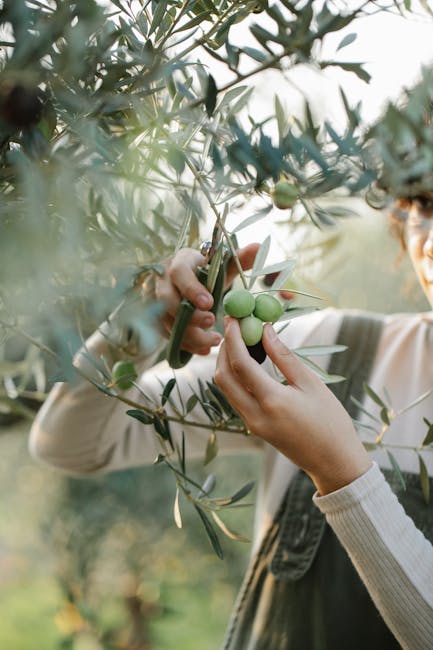How to Deter Raccoons from Your Garden: A Comprehensive Guide to Coexistence
Raccoons, with their masked faces and nimble paws, are fascinating creatures. However, their nocturnal foraging habits can quickly turn your meticulously cultivated garden into a nighttime buffet. While the sight of a raccoon might seem charming, the reality of ravaged crops and damaged property is far less appealing. This comprehensive guide will equip you with the knowledge and strategies to effectively deter raccoons from your garden without resorting to harmful methods.
Understanding Raccoon Behavior: The First Step to Deterrence
Before implementing any deterrence strategy, understanding raccoon behavior is crucial. Raccoons are omnivores, meaning they eat both plants and animals. Their diet includes fruits, vegetables, insects, eggs, and even small rodents. Their attraction to your garden isn’t necessarily malicious; they’re simply seeking readily available food sources. They’re also highly intelligent and adaptable, making them challenging but not impossible to deter.

Identifying Raccoon Activity: Signs of an Unwanted Guest
- Damaged plants: Look for uprooted or partially eaten vegetables, fruits, and flowers.
- Tracks: Raccoon tracks are distinctive, with five toes and a noticeable heel pad.
- Droppings: Raccoon droppings are typically dark and cylindrical, often containing undigested food remnants.
- Scratch marks: They might leave scratch marks on fences or walls as they attempt to gain entry.
- Nests: Raccoons might create nests in attics, sheds, or under decks. In gardens, they may use dense shrubs or compost piles.
Prevention: Making Your Garden Less Attractive to Raccoons
The most effective approach is proactive prevention. By making your garden less appealing to raccoons, you reduce the likelihood of them becoming uninvited guests in the first place.
Secure Food Sources: Removing the Allure of Easy Meals
- Properly store garbage: Use tightly sealed garbage cans and store them in a secure location, ideally inside a garage or shed.
- Secure pet food: Keep pet food indoors or in sealed containers inaccessible to raccoons. Never leave pet food outside overnight.
- Clean up fallen fruit: Regularly remove fallen fruit from trees and bushes to prevent attracting raccoons.
- Harvest ripe vegetables promptly: Don’t let ripe vegetables sit on the vine for longer than necessary.
- Compost properly: Secure your compost bin with a tight-fitting lid to prevent raccoons from accessing it.
Physical Barriers: Keeping Raccoons Out
Physical barriers can significantly hinder raccoon access to your garden. However, remember that raccoons are skilled climbers and diggers, so a multi-layered approach is often best.

- Fencing: Use sturdy fencing that extends at least several feet underground to prevent digging and several feet above ground to prevent climbing.
- Chicken wire: Protect individual plants with chicken wire cages or use it to reinforce vulnerable areas of your fence.
- Netting: Use netting to cover fruit trees or vegetable patches.
- Motion-activated sprinklers: These sprinklers deter raccoons by spraying water when motion is detected.
Deterrents: Strategies to Encourage Raccoons to Move On
If raccoons have already discovered your garden, deterrents can help discourage them from returning. However, these methods should be used in conjunction with preventative measures.

Natural Repellents: Utilizing Scents Raccoons Dislike
Several natural scents can deter raccoons. However, it’s crucial to remember that these repellents often require frequent reapplication, especially after rain.
- Peppermint oil: Dilute peppermint oil with water and spray around your garden perimeter.
- Ammonia: Soak rags in ammonia and place them near areas where raccoons have been active. (Use caution, as ammonia is toxic.)
- Vinegar: Similar to ammonia, vinegar’s strong scent can deter raccoons.
- Garlic: Plant garlic around the perimeter of your garden; its pungent odor can act as a deterrent.
- Predator urine: While controversial, some gardeners utilize coyote or dog urine to deter raccoons, simulating the presence of predators.
Commercial Repellents: Exploring Store-Bought Options
A variety of commercial repellents are available. Always read the instructions carefully and ensure the product is safe for pets and the environment. Effectiveness can vary, so be prepared to experiment.
Coexistence: Living Peacefully with Wildlife
The goal isn’t to eliminate raccoons from your neighborhood but to manage their access to your garden. Coexistence requires understanding their needs and working towards a solution that protects both your garden and the wildlife.
Provide Alternative Food Sources: Reducing the Incentive to Raid Your Garden
By providing alternative food sources, you reduce the temptation for raccoons to raid your garden. This approach can be particularly effective in areas where natural food sources are scarce.
- Bird feeders: Place bird feeders away from your garden to attract birds, thus providing an alternative food source for raccoons.
- Water sources: Provide a clean water source away from your garden to attract wildlife and reduce their need to seek water in your garden.
Contact Wildlife Professionals: When Deterrents Fail
If all else fails, contact a local wildlife removal professional. They can assess the situation and provide more specialized assistance. Remember, humane removal is always the preferred option.
By implementing a combination of preventative measures, deterrents, and a commitment to coexistence, you can significantly reduce the impact of raccoons on your garden while respecting the natural world around you.

